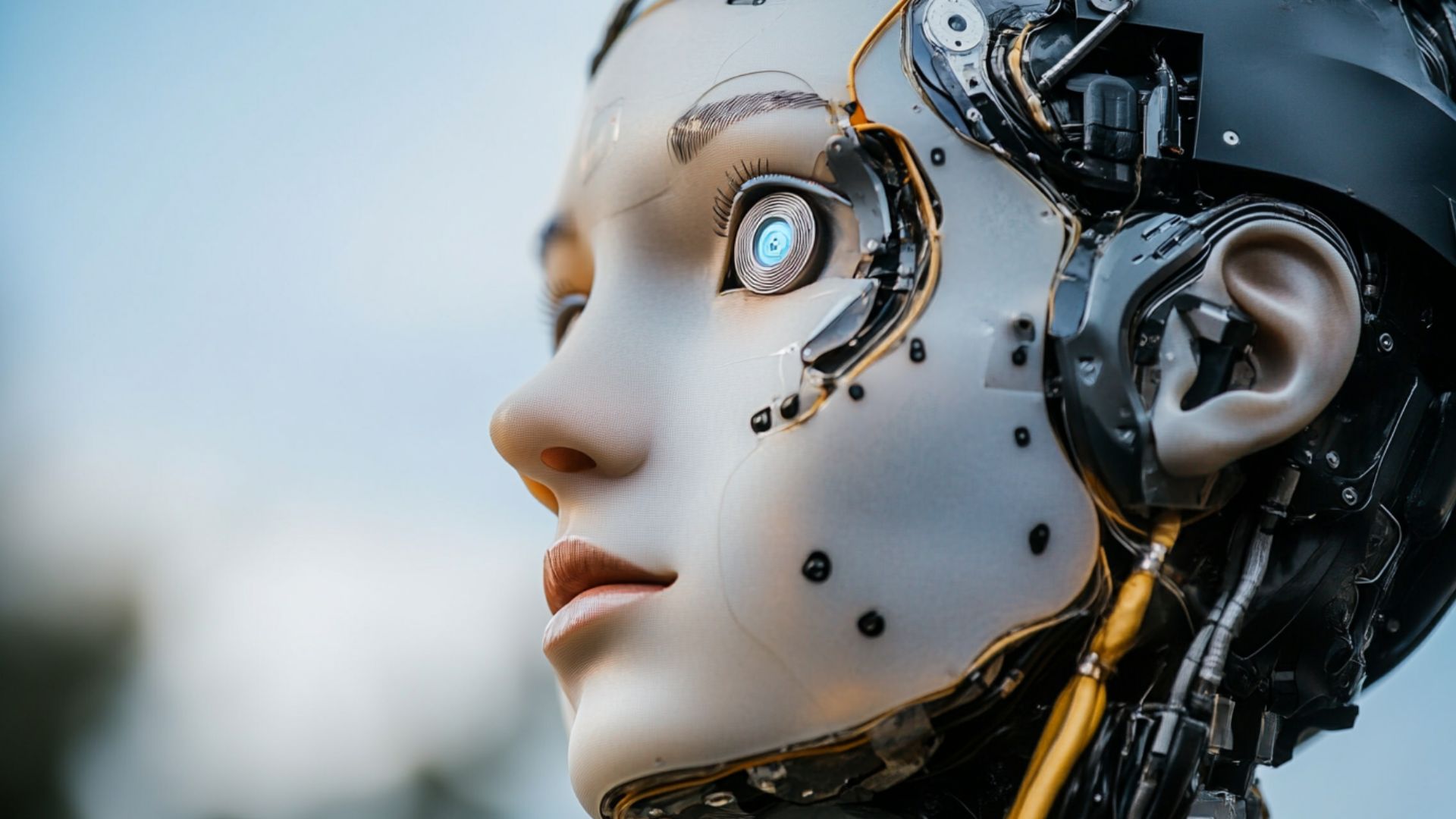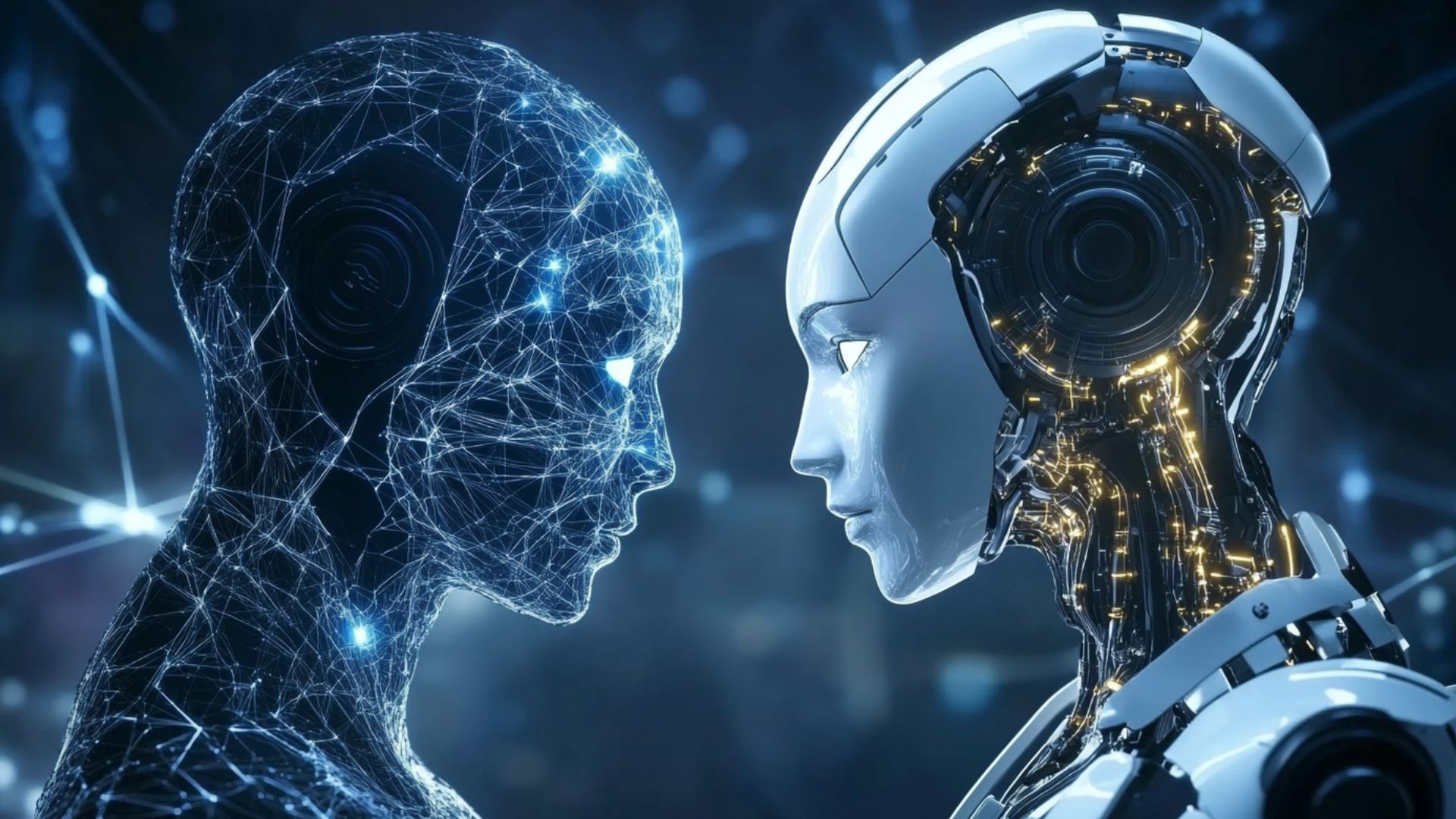The Impact of AI on Automation and Technological Advancements

The latest technological achievements are becoming essential in our modern lives. They transform technology and define new trends. This rapidly changing and evolutionary trend shapes the course of technological development. It also affects a wide range of industries and spheres of life, from medicine and transport to finance and education.
Automation with AI accelerates business processes. It creates new opportunities for efficiency and innovation across industries. This dynamic development opens up a wide range of opportunities:
- increase productivity
- optimize processes
- achieve new levels of success in business and research
Companies that take advantage of AI can quickly gain a competitive advantage in the market. They may discover new opportunities for innovation and development. AI and automation are transforming our world. It creates new challenges. Understanding its potential and capabilities will allow us to open new horizons. Also, it'll help me reach new heights in various fields of activity.
AI as a Catalyst for Automation in Industry
Significant transformations concern various sectors and business areas. These changes include manufacturing, healthcare, and finance. Also, AI reshapes automation strategies. Here's how automation with AI is revolutionizing these industries:
- Manufacturing: AI-powered automation systems optimize production processes. They predict maintenance needs, improve supply chain management, and enhance quality control. Machine learning algorithms (MLA) analyze data from sensors and machinery. These algorithms identify inefficiencies and streamline operations, increasing productivity and reducing downtime.
- Healthcare: AI-driven automation in this area streamlines administrative tasks. It facilitates medical diagnosis and improves patient care. AI algorithms analyze medical images. Also, they detect patterns in patient data. These algorithms assist in treatment planning. It is leading to more accurate diagnoses and personalized care plans.
- Finance: These technologies automate routine tasks. They are data entry, fraud detection, and risk assessment. AI algorithms analyze financial data in real-time. They also identify anomalies. These algorithms make predictive recommendations. It enables financial institutions to make informed decisions faster.
The synergistic effects of AI and automation technologies amplify productivity. Also, it raises operational capabilities across industries. It is vital to leverage AI's capabilities to automate repetitive tasks. So, businesses can allocate resources more efficiently, reduce costs, and accelerate innovation. Ultimately, this drives growth and competitive advantage.
Enhancing Manufacturing Processes
In manufacturing, the integration of automation and AI is revolutionizing traditional production methods. It enhances precision and enables customization capabilities. Here's how AI-driven automation is transforming manufacturing. This is along with case studies showcasing its impact:
| Aspect | Description |
|---|---|
| Precision Engineering | AI-powered automation systems optimize manufacturing processes. They fine-tune parameters with precision and accuracy. |
| Customization Capabilities | AI algorithms analyze client preferences and production data. It helps to tailor products, enabling mass customization at scale. |
| Case Studies | One of the main studies is Elon Musk's company. Tesla utilizes automation AI for predictive maintenance. It enhances production efficiency and quality. Boeing implements AI-powered robotics for aircraft assembly. It improves production speed and accuracy. Nike leverages AI-driven design and manufacturing for custom shoe production. It meets individual client needs. |
Manufacturers can achieve higher efficiency, quality, and customization through AI-driven automation. It helps them to stay competitive in today's dynamic market landscape.
Innovations in Healthcare Automation
AI is revolutionizing this area. It drives automation in diagnostic and treatment processes. AI leads to more accurate diagnoses and personalized treatment plans. Here's an analysis of its impact:
| Aspect | Description |
|---|---|
| Diagnostic Automation | AI algorithms analyze medical images, patient records, and genetic data. It assists healthcare professionals in diagnosing diseases accurately. These systems can detect subtle patterns and anomalies. Human observers may miss them. |
| Treatment Process Automation | AI-driven automation streamlines treatment processes. It recommends personalized treatment plans. They are generally based on patient data, medical history, and clinical guidelines. This ensures that patients receive tailored interventions optimized for their needs. |
| Improved Accuracy | Automation and AI contribute to more accurate diagnoses by leveraging advanced algorithms. They help to analyze complex datasets and identify diagnostic markers with high precision. This reduces the likelihood of errors. It ensures patients receive timely and appropriate care. |
| Personalized Treatment Plans | AI facilitates the development of personalized treatment plans. It analyzes patient data to identify optimal interventions and predict treatment outcomes. This enables healthcare providers to deliver targeted therapies. They address the specific needs of each patient. |
By integrating AI for automation, doctors can deliver more efficient care. It ultimately improves patient outcomes and satisfaction.
AI and the Automation of Knowledge Work

AI is revolutionizing industries. It does it by automating complex knowledge tasks. Humans traditionally performed them. This integration of AI is reshaping fields. They are legal services, financial analysis, and research in the following ways:
- Legal Services: AI-powered algorithms analyze vast amounts of legal documents and case law. It assists lawyers in legal research, contract review, and due diligence processes. This automation streamlines workflows and reduces costs. Also, it improves the accuracy and efficiency of legal services.
- Financial Analysis: AI algorithms analyze financial data, market trends, and investment patterns. They assist analysts in making informed decisions. They are regarding investments, risk management, and portfolio optimization. AI-driven automation technologies enhance the speed of financial analysis. It leads to better investment outcomes and risk mitigation strategies.
- Research: AI tools automate data analysis and hypothesis testing in scientific research. They speed up the pace of discovery and innovation. Analyzing large datasets and identifying correlations is vital. So, AI enhances researchers' ability to uncover insights and make breakthroughs in various fields. They are from healthcare to materials science.
AI in automation can handle repetitive and time-consuming knowledge work, allowing professionals to focus on higher-value tasks. This is while it handles repetitive and time-consuming knowledge work. AI also raises ethical and societal implications. They are regarding job displacement, privacy concerns, and algorithmic biases.
AI in Financial Services
This is pivotal in automating various financial services. They include algorithmic trading and fraud detection. It reshapes the sector of financial decision-making processes. Here's an exploration of AI for automation in financial services:
- Algorithmic Trading: AI algorithms analyze market data, news sentiment, and historical patterns. They execute trades automatically at optimal times and prices. This automation enhances trading speed, accuracy, and efficiency. It improves investment outcomes and risk management strategies.
- Fraud Detection: AI-powered systems analyze transactional data, user behaviors, and patterns. It helps to detect fraudulent activities in real time. AI identifies anomalies and suspicious patterns. So, it allows financial institutions to mitigate risks. Also, it protects against financial fraud. AI enhances security and trust in the economic system.
While the integration of AI in automation offers numerous benefits in financial services, it also presents challenges:
- Data Privacy: AI algorithms require access to large volumes of data. They raise concerns about data privacy and security.
- Algorithmic Bias: AI systems may exhibit biases inherent in the data used for training. It leads to unfair or discriminatory outcomes.
- Regulatory Compliance: Financial institutions must navigate regulatory frameworks and compliance requirements. This is when integrating AI-driven solutions to ensure transparency and accountability.
Despite these challenges, the adoption of AI for automation in financial services continues to grow. It is generally driven by its potential to improve efficiency and mitigate risks. AI unlocks new opportunities for innovation and growth.
Transforming Legal and Research Fields
The integration of AI is revolutionizing research and legal practices by automating tasks. They are data analysis, documentation, and research. It leads to improved accessibility and accuracy. Here's how automation in AI is transforming these fields:
- Legal Documentation: These tools automate legal document drafting and due diligence processes. Such systems analyze vast amounts of legal text and case law. They assist lawyers in preparing documents and conducting legal research efficiently. By automating routine tasks, AI enhances accuracy and reduces errors. It frees time for legal professionals to focus on higher-value activities.
- Research Automation: AI algorithms automate scientific research data analysis and hypothesis testing. It accelerates the pace of discovery and innovation. These systems analyze large datasets, identify patterns, and generate insights. They assist researchers in uncovering new knowledge and making breakthroughs in various fields.
Integrating automation AI in these fields raises ethical considerations. They are about data privacy, algorithmic bias, and the impact on job roles. Legal practitioners must ensure transparency and accountability when using AI-driven tools. They address concerns related to fairness, responsibility, and the protection of client confidentiality.
Despite these challenges, the future of AI in legal practices is promising. It has continued advancements in natural language processing (NLP) and legal analytics. Leveraging AI automation technologies responsibly is crucial. So, legal professionals can enhance efficiency, accuracy, and accessibility. It ultimately improves the delivery of legal services and advances the rule of law.
Integrating AI with Existing Automation Systems

Integrating new technologies with existing automation systems presents challenges and opportunities. They are vital for organizations seeking to enhance efficiency and productivity. Here's a discussion on automation in AI integration and strategies for maximizing its benefits:
- Technical Challenges: Integrating AI with these systems requires overcoming technical hurdles. They are compatibility issues and data integration complexities. It ensures seamless communication between different technologies. Organizations may need to invest in upgrading infrastructure and deploying new software solutions. Also, they must train personnel to utilize AI capabilities effectively.
- Organizational Adjustments: Implementing AI successfully entails making this aspect. It includes restructuring workflows and redefining roles and responsibilities. Also, it involves fostering a culture of innovation and collaboration. Organizations must ensure alignment between AI initiatives and business objectives. They can secure executive buy-in and support.
- Maximizing Benefits: This is vital to maximize the advantages of technology automation integration. Organizations should prioritize data quality and accessibility. They must establish clear performance metrics and benchmarks. Organizations need to evaluate and iterate on AI-driven processes continuously. Collaboration between IT and business units is essential. It helps identify use cases, install solutions, and measure ROI.
Successfully integrating AI with existing automation systems requires careful planning, investment, and ongoing commitment
Future Directions of AI in Automation
The future of AI in automation and technology usher in transformative changes. They are across industries, driving innovation, efficiency, and competitiveness. Here are predictions for future trends and upcoming innovations in AI:
- Advanced Machine Learning (ML): Future advancements will enable AI systems to learn in real-time. It enhances their predictive capabilities and decision-making accuracy. These advancements will lead to more personalized and context-aware automation solutions. They are directly tailored to individual needs and preferences.
- Autonomous Systems: The development of these systems capable of self-learning, self-optimizing, and self-repairing. It will revolutionize technology automation. These systems will enable industries to achieve unprecedented levels of efficiency and scalability. It reduces human intervention and operational costs.
- Natural Language Processing: It will allow AI systems to produce language similar to that of humans. It makes human-machine communication and interaction more conversational and intuitive. Knowledge management systems, virtual assistants, and customer service will all be revolutionized by this. They improve productivity and user experiences.
- Edge Computing: Integrating AI with these technologies will enable real-time data processing. Also, it'll allow decision-making at the edge of the network. It reduces latency and bandwidth requirements. This will enable manufacturing, healthcare, and transportation to deploy AI-driven solutions. They distribute environments with limited connectivity.
The era of AI in automation and technology is just beginning. Fully realizing its benefits will take time. For now, business and social leaders are facing significant challenges. Among them are identifying AI-associated risks and determining workers' necessary skills. Rethinking core business processes also are essential.


